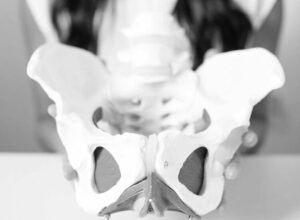Spotlight on Menopause & pelvic health and what we can do to help !

Menopause has negative connotations in our society , from getting old, hot flushes, being moody and sleepless nights. However, it’s not a disease, every women will transition through the menopause and research shows we may have more control of symptoms than we think .
So lets start with some definitions of the transitional period :
- Menopause – is the point in time where a woman has not had her period for 12 months, which occurs at the average age of 52.
- Perimenopause is the period of up to 10 years before menopause during which changes in progesterone, estrogen, and testosterone hormone levels occur. This is the time you may start to feel some changes , and they may occur earlier than you realise.
- Post-menopause is the period of time after menopause.
Here is a brief outline of some of the hormonal changes that occur :
- Progesterone levels start to change and decline during the peri-menopause period. This hormone contributes to sleep, calmness (anti-anxiety), and pain processing.
- Estrogen levels decline gradually and fluctuates through the perimenopausal period. Estrogen (and estrogen variations) contributes to tissue lubrication (including the vulva), tissue elasticity (including the ligaments that help hold up your organs), heart health, sleep quality, and mood.
- Testosterone, decreases in the postmenopause stage. This hormone impacts sexual desire and pleasure, energy, muscle mass, bone density, and mood.
As you can see the hormonal fluctuations can influence many of the body’s systems. Of particular importance during the peri-postmenpausal period is controlling stress and cortisol levels, eating a wholefood rich and anti-inflammatory diet, strength training is better than overtraining cardio exercise for bone health but also so that we don’t stress our adrenal system. Tapping into activties that soothe the adrenals such as breath work, deep relaxation, lifestyle change that ease stress , more time for ourselves etc. can all help balance our hormonal levels and make this transition easier.
Pelvic health is also important during peri-postmenoapsue as tissue strength, laxity and lubrication can decline .
You may start to notice changes in your pelvic :
Prolapse : 50 percent of women over 50 will notice that their pelvic organs sit lower after this time. The pelvic organs being the bladder , cervix/uterus or rectum . When these organs sit lower you can feel a sense of heaviness, dragging, difficutly in completely emptying the bladder or bowel. Prolapse is more common in women who have had perineal tears during childbirth , regardless of how long ago.
Pain with sex : Can happen because of changes in the tissue , irritation and sensitivity , vulvar or vaginal tissue dryness. You can ask your Gp for an estrogen cream and HRt often helps this as well. You can also use a vaginal moisturiser such as YES organics.
Urinary incontinence , frequency and urgency is a symptom of pelvic floor dysfunction , which you can start to notice during peri-post menopause.
Pelvic Health / women’s health physiotherapy can help with these types of symptoms by assessing your pelvic floor muscles, whole body strength and lifestyle factors which may be playing into your symptoms. We give advcie on pelvic floor muscles training, global body strengthening and lifestyle , gut health and optimal bowel, bladder and sexual function. Part of women’s health physiotherapy is looking at the bigger picture and optimising clients education around hormone balancing.
Key take aways are, try an anti-inflammatory or whole food diet diet, lots of good quality sleep, minimise stress and integrate stress busting and adrenal soothing activities into your lifestyle – think breathing techniques – yoga nidra and calming activities, strength training and look after your pelvic health.
Rosie is a women’s health physiotherapist who can help you with menopausal pelvic health and lifestyle coaching. Please do get in contact for menopause coaching packages or pelvic health appointments .